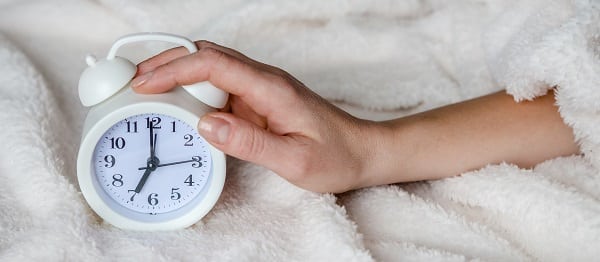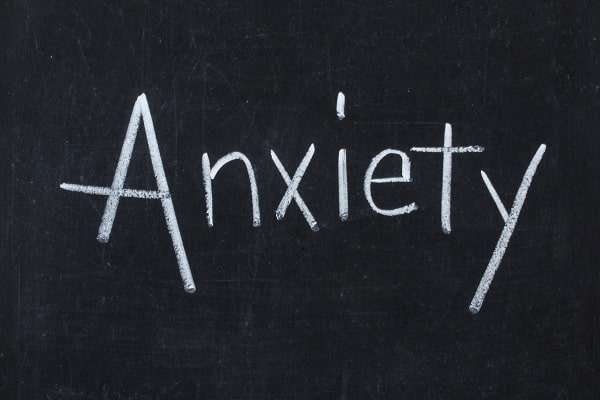Depression is a mental illness that affects many people in the United States. It can cause a person to feel sad, hopeless, and worthless. There are many signs of depression, and it is important to know what to look for if you think someone you know might be suffering from this condition. This post will discuss the top 6 signs of depression. If you notice that someone you know is exhibiting any of these signs, it is important to get them to help right away!
Contents
A Hopeless Outlook Can Lead To Depression

A hopeless outlook is often one of the first signs of depression. When someone feels like there is no point in trying anymore, it’s a clear sign that they are losing hope. This feeling can be difficult to shake, and it can quickly spiral into more severe depression. If left unchecked, a hopeless outlook can lead to many problems, including social isolation, poor sleep, and reduced motivation. In severe cases, it can even lead to suicidal thoughts and behaviors. Fortunately, there are many effective treatments for depression, including therapy, medication, and lifestyle changes. With the right help, it is possible to overcome a hopeless outlook and begin to reclaim your life.
Lost Of Interest

It’s not unusual to feel a bit down when you lose interest in something you once enjoyed. Maybe you used to love painting but haven’t picked up a brush in months, or perhaps you used to go for weekly runs but haven’t laced up your sneakers in weeks. While it’s normal to experience a dip in the mood when you lose interest in an activity, prolonged periods of apathy can be a sign of depression. Depression is characterized by a loss of interest in once enjoyable activities and feelings of hopelessness, sadness, and fatigue. If you’re experiencing these symptoms, it’s essential to reach out for help. Depression is a serious condition that can lead to a host of other problems, including substance abuse, self-harm, and even suicide. However, there is hope: with treatment, most people with depression can lead happy and fulfilling lives. If you think you might be depressed, reach out to a friend or family member for support, or see your doctor for an evaluation. Early intervention is key to managing depression and preventing serious complications.
Sleeping Problems

According to the National Institute of Mental Health, depressive disorders are among the most common mental health conditions in the United States. More than 16 million adults suffer from depression each year. While many different factors can contribute to the development of depression, research suggests that sleep problems may play a role. For example, people who have insomnia or other sleep disorders are more likely to experience symptoms of depression. This is likely because sleep problems can cause mood, energy, and concentration problems. In addition, sleep deprivation can also lead to changes in brain activity similar to those seen in people with depression. As a result, it’s not surprising that people who have trouble sleeping are also at an increased risk of developing depression. Therefore, treatment for sleep problems can be a vital part of managing and preventing depression.
Anxiety

Anxiety and depression are two very different mental health disorders. However, they often go hand-in-hand. Anxiety can lead to depression, and depression can lead to anxiety. It can be a vicious cycle. People who suffer from anxiety often worry about things that never happen. They may have intrusive thoughts or be constantly on edge. This can take a toll on their mental and physical health, leading to fatigue, insomnia, and even gastrointestinal issues. Over time, this can lead to depression. Depression is more than just feeling sad. It’s an actual medical condition that can cause a person to lose interest in activities they once enjoyed, feel hopeless, and withdraw from friends and family. If left untreated, depression can be debilitating. But with treatment, people with anxiety and depression can live full and productive lives.
Uncontrollable Emotions

Emotions are an ordinary and necessary part of life. They help us express ourselves, bond with others, and cope with stress and adversity. However, when emotions become unmanageable, they can lead to problems such as depression. Depression is more than just feeling sad or down in the dumps. It is a severe medical condition that can interfere with every aspect of a person’s life. People who are depressed may not be able to concentrate at work or school, struggle to maintain relationships, and lose interest in activities that once brought them joy. In severe cases, depression can even lead to thoughts of suicide. Many different factors can contribute to depression, but one of the most important is uncontrolled emotions. When someone cannot effectively manage their emotions, it can trigger a downward spiral into depression. Fortunately, there are many different ways to get help for depression, including therapy, medication, and self-care. If you think you might be depressed, don’t hesitate to reach out for help.
Changes In Weight & Appetite

Depression is a serious mental illness that can have a profound effect on every aspect of a person’s life. While feelings of sadness and despair often characterize it, depression can also lead to physical changes. For example, some people with depression may experience changes in their weight or appetite. They may lose interest in food and eat less than usual, leading to weight loss. Or they may find themselves overeating, leading to weight gain. These changes in weight and appetite can significantly impact a person’s mood and energy levels, making it difficult to cope with day-to-day life. If you are experiencing changes in your weight or appetite, it is important to talk to your doctor or mental health professional. Depression is a treatable condition, and there are many effective treatments available. With the right help, you can start to feel better and get back to enjoying your life.
Know The Symptoms Of Depression
While everyone experiences sadness from time to time, depression is more than just feeling down. It is estimated that 1 in 6 adults will experience depression at some point in their lives, making it one of the most common mental disorders. Despite its prevalence, however, depression often remains underdiagnosed and untreated. Part of the reason for this is that many people do not know the symptoms of depression.
Symptoms of depression can include:
- Changes in sleep patterns, appetite, energy levels, and concentration.
- Feelings of worthlessness or hopelessness.
- Thoughts of death or suicide.
If you are experiencing any of these symptoms on a persistent basis, it is crucial to seek help from a mental health professional. With proper treatment, most people with depression can find relief from their symptoms and go on to lead happy and fulfilling lives.


